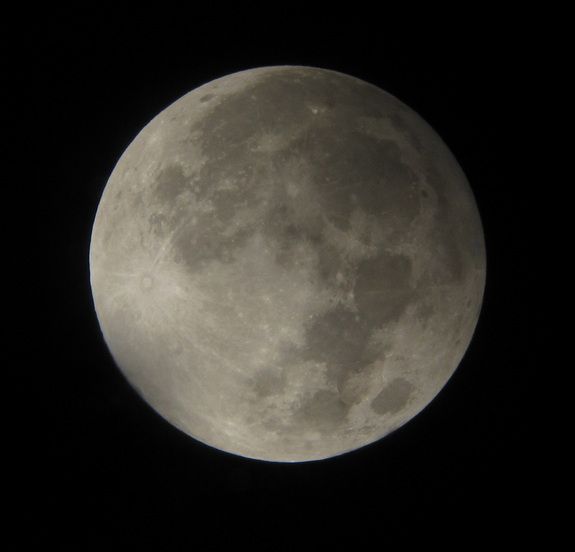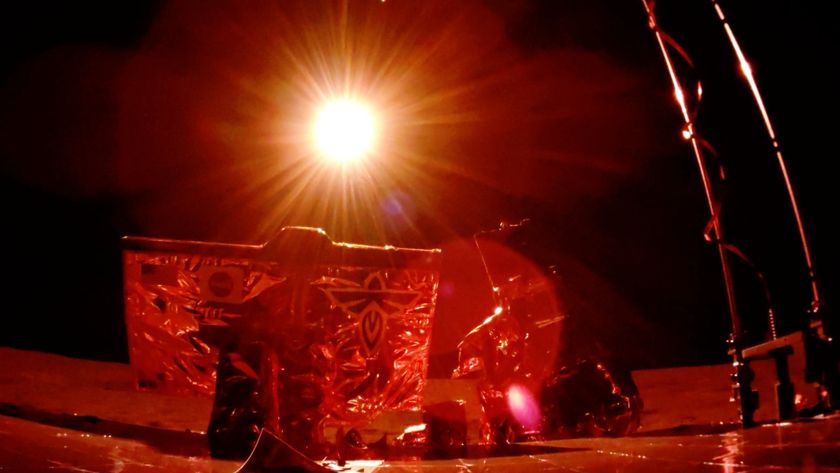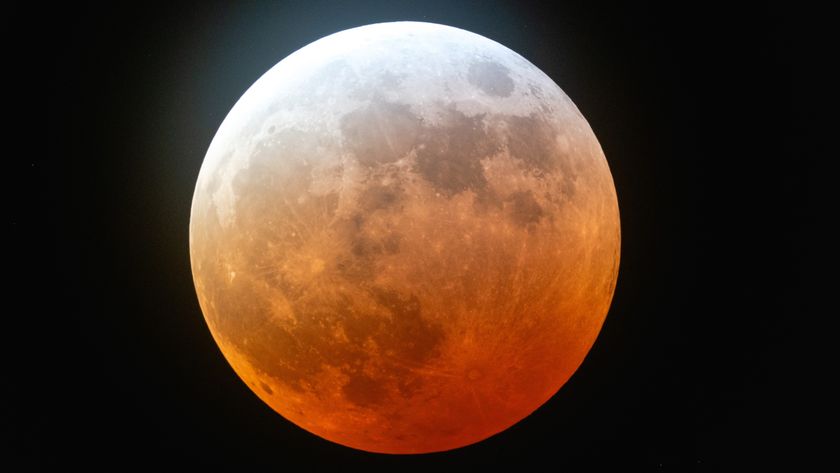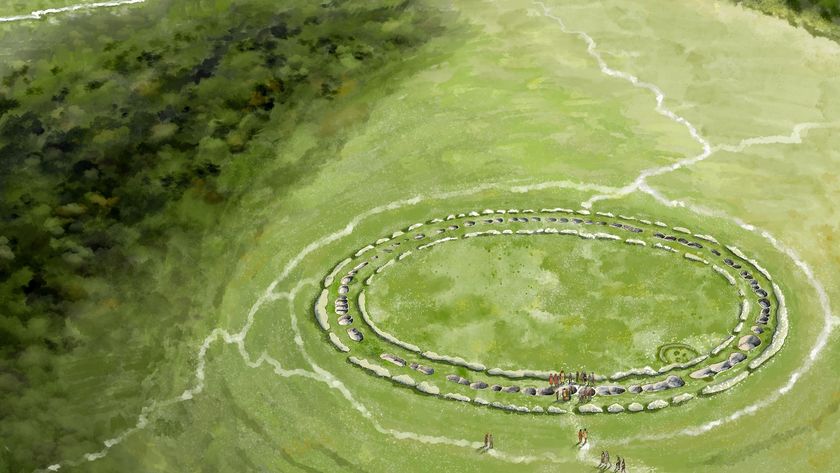
Is There a Rabbit in the Moon?

You've probably heard of the man in the moon. But what about the rabbit in the moon? Or the frog?
These mythical beings are the result of pareidolia, the tendency to see anthropomorphic images in objects ranging from lunar surfaces to taco shells. In one famous case from 2004, a woman who claimed to see the face of the Virgin Mary in a grilled-cheese sandwich was able to sell the sandwich on eBay for $28,000, according to NBC News.
(And pareidolia isn't even confined to human beings: Some facial-recognition software programs recognize faces in wall outlets, window panes and door keys.)
The legend of the rabbit in the moon is common to many ancient cultures, including Japanese, Mesoamerican and Chinese traditions. In Japanese folklore, a fox, a rabbit and a monkey are accosted in the woods one evening by an old man.
Hungry, the old man begs the animals for some food. The monkey gathered nuts, the fox stole some fish, but the rabbit — who ate only grass — had nothing to offer. When the other animals teased the rabbit, he offered himself as a meal and hopped onto the old man's fire.
Deeply touched, the old man — who turned out to be a god — gave the rabbit immortal life by placing him on the moon.
In these legends, the rabbit's head is formed by the Mare Serenitatis (Sea of Serenity); its ears by the Mare Tranquillitatis, the Mare Fecunditatis and the Mare Nectaris (the seas of Tranquility, Fecundity and Nectar); and the body and legs by the Mare Imbrium (the Sea of Showers) and the Oceanus Procellarum (the Ocean of Storms). A small, puffy bunny tail is formed by the Mare Nubium (the Sea of Clouds).
Sign up for the Live Science daily newsletter now
Get the world’s most fascinating discoveries delivered straight to your inbox.
The frog (or toad) in the moon is a myth shared by African, Native American and Chinese folklore. In one African version of the tale, a great king sought to marry off his only son, who said he would marry no one except the daughter of the king of the moon.
No one knew how to deliver the prince's offer of betrothal to the moon, however, until a frog volunteered to carry the message. The frog knew that the moon king's daughter traveled to Earth every night to gather water from the frog's pond.
The next night, when the moon king's daughter showed up, the frog hopped into her bucket and traveled with her back to the moon, where he delivered the prince's marriage proposal to the moon king.
After accepting the offer, the daughter of the king of the moon traveled back down to Earth to meet her betrothed the same way she always did: on a silken thread made by the spider in the moon, whose legs and body are formed by the impact debris shooting out from the crater Tycho.
The man in the moon is primarily a European tradition, with the man's eyes formed by the Mare Imbrium and the Mare Serenitatis; his wide-open mouth is formed by the Mare Nubium.
There are dozens of legends involving the man in the moon: In many of these, he is banished to the moon for committing some crime. According to one version, an old man was gathering firewood when he encountered another man wearing his Sunday best.
"Why are you gathering firewood on the Sabbath?" the stranger asked. When the old man laughed at the stranger, he condemned the old man to carry his heavy load of firewood on the moon forever as a warning to all who fail to honor the Sabbath.
One of these ancient moon legends even became a part of modern myth: NASA astronaut Edwin "Buzz" Aldrin was told by mission control in Houston, before the first moon landing in 1969, about a Chinese legend involving a beautiful girl who stole the secret of immortality from her husband. Banished to the moon, her sole companion was the famous rabbit in the moon.
"Okay," Aldrin responded wryly. "We'll keep a close eye out for the bunny girl."
Follow LiveScience on Twitter @livescience. We're also on Facebook & Google+.












